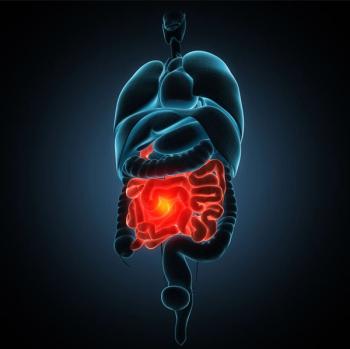
IBD: Managing Ongoing Disease Activity
How to best treat a patient with inflammatory bowel disease who demonstrates no disease response to initial biologic treatment, as well as insight surrounding the treatment of patients who develop perianal disease.
Episodes in this series

Joseph Feuerstein, MD: Continuing the case, 6 months have passed, and the patient has experienced no significant improvement. The patient underwent repeat imaging and a scope showing ongoing disease activity of moderate severity. Dr Sands, knowing this, how would you treat this patient now?
Bruce E. Sands, MD: Assuming the patient did indeed get combination therapy, as we all endorsed with an anti–TNF [tumor necrosis factor] and thiopurine, this is a serious situation. She hasn’t responded to what may be 1 of our best therapies. The first thing is that you have objective evaluation showing that there’s ongoing disease activity. You’ve shown that. It’s important to not only rely on symptoms of not feeling well. Occasionally patients will respond very well in terms of the inflammation but may still manifest symptoms. But in this case, the inflammation is ongoing, so the process is not under control.
First, make sure the patient has adequate levels of the anti-TNF—in this case, infliximab—to treat the disease. You can send trough levels to understand that. It’s also possible to send levels of the thiopurine, although that may be less helpful here. Assuming the levels are adequate, meaning they’re in a range that we know should be therapeutic for most patients, you may end up switching to a different class of medication, probably a second biologic in this case. Ustekinumab would possibly be your next choice based on network meta-analyses of what works best as second-line biologic therapy.
It’s also possible that the patient has developed antidrug antibodies against the infliximab in that situation, which you can assay for. It’s possible to switch within class to a different anti-TNF. A third option is simply that you test and find the patient doesn’t have antidrug antibodies, but they do have low levels of infliximab below what their trough should be. In that case, it’s possible to dose escalate. That’s how you could think through these options.
Joseph Feuerstein, MD: Thank you for that thorough explanation. Dr Hanauer, some patients with Crohn disease can develop perianal disease. How does that change your decision-making with regard to drug management?
Stephen B. Hanauer, MD: About 20% of patients develop perianal disease, which can include perianal fistula, which are quite troublesome to both men and women. In women, perianal disease can extend into the vagina. It compromises quality of life for the majority of patients. The problem is that we have very limited evidence on the effectiveness of therapies for perianal fistula in the setting of Crohn disease. Dr Sands led a landmark study of infliximab in that setting. This has been our most effective therapy, usually in combination with a thiopurine because of the additional complexity in this individual.
It’s also important to engage a surgeon in the setting of perianal disease, because sometimes the fistulas may be superficial and are readily amenable to minor surgical procedures. If they have deeper fistula, they’ll need a combination of medical therapy and surgical drainage and/or setons. But this is probably well beyond a primary care physician’s expertise, because we’re already discussing gastroenterologists and colorectal surgeons working together in this setting. Other drugs haven’t been evaluated directly. There’s some post hoc evidence that there may be reduction in fistula with ustekinumab, as we mentioned. But the most direct evidence for effectiveness comes from the TNF inhibitors, infliximab in particular.
Transcript edited for clarity.
Newsletter
Enhance your clinical practice with the Patient Care newsletter, offering the latest evidence-based guidelines, diagnostic insights, and treatment strategies for primary care physicians.
































































































































